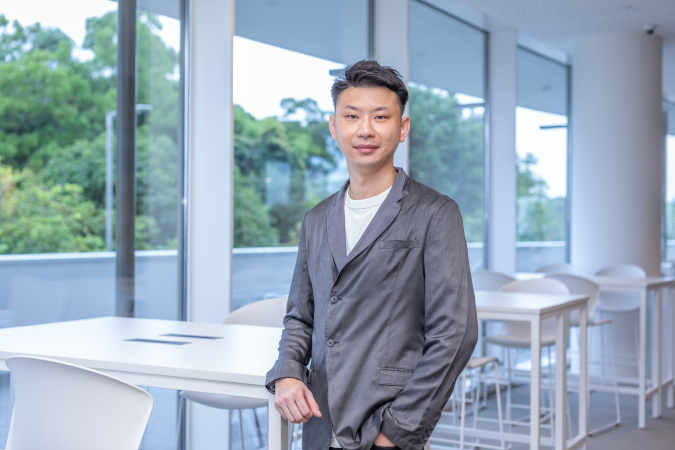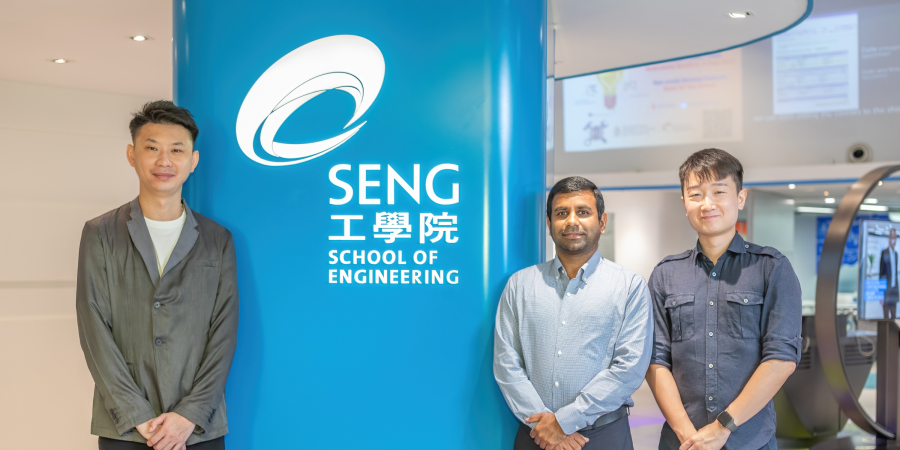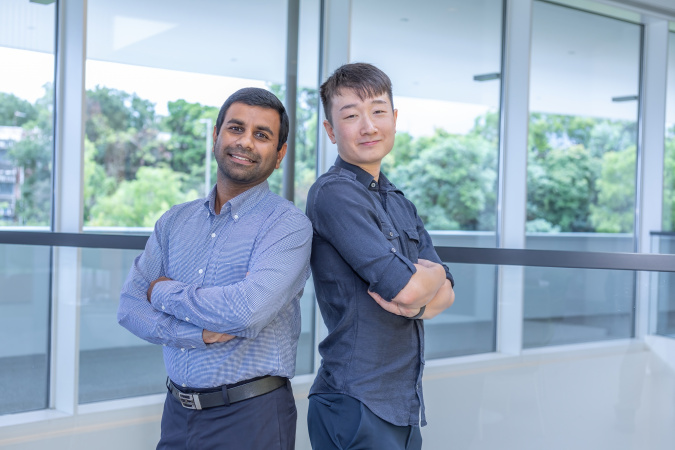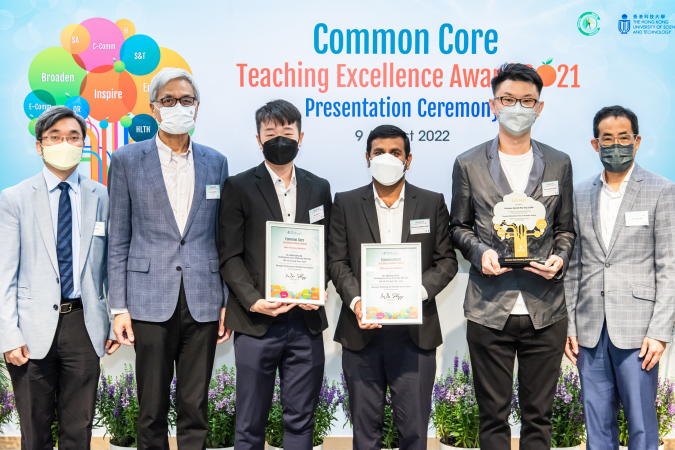Three SENG Academic Staff Honored in HKUST Common Core Teaching Excellence Award 2021
Three academic staff of the School of Engineering (SENG) were awarded the HKUST Common Core Teaching Excellence Award 2021, recognizing their substantial contribution made in designing and teaching exemplary common core courses, and in promoting these courses to the students in the University community. The achievements of the awardees were celebrated at the online award presentation ceremony today (August 9, 2022).
Prof. Kenneth LEUNG from the Department of Computer Science and Engineering received the Common Core Teaching Excellence Award. The winning course he teaches – COMP 2711 Discrete Mathematical Tools for Computer Science – creates an inspiring learning environment where difficult and abstract knowledge is made accessible and enjoyable.
“Happy classes make happy students. Many students find me friendly, caring, and approachable, and this makes the acquisition of knowledge fun,” said Prof. Leung. “To make COMP 2711 even more interesting, a gamification system is developed for students not only to answer questions, but also to design their own questions for the course. Designing questions requires students to have a good understanding of the knowledge and concepts covered in class. This makes the learning process engaging because students are more than willing to answer interesting questions from their peers.”
Apart from gamifying the teaching process, Prof. Leung also uses teaser questions to stimulate students’ critical thinking, build collaborative learning, and sustain their learning enthusiasm. By adopting the “try-it-before-we-explain” approach, he demonstrates the importance of learning the theoretical concepts through introducing real-life issues. Moreover, students also noted in particular the effectiveness of the cloud-based instant messaging channel set up by him, which enables them to discuss and raise questions on course topics and beyond. Prof. Leung’s innovative pedagogy successfully motivates students to become passionate, proactive, and happy learners, and has fostered in students a lasting appreciation of discrete math and related areas.
Previously, Prof. Leung was recognized with an Honorary Mention of the Common Core Teaching Excellence Award in 2019 for teaching the course COMP 1001.
Mr. Malinda ABEYNAYAKE and Mr. Joel YU from the Student Innovation for Global Health Technology (SIGHT) team under SENG received the Honorary Mention for teaching the course ENGG 1300 Design Thinking for Health Innovation. The course is remarkably distinct in the sense that it adopts a project-based learning approach. Students are set with the task of devising prototypes that can address a real-world healthcare issue.
“I strongly believe that students are naturally innovative. As educators our role is to cultivate an environment conducive to unleashing the potential of students as change-makers,” said Mr. Abeynayake. “In ENGG 1300, not only have we drawn the essences from multiple pedagogical approaches, such as experiential learning, design thinking, and integrative learning, but we also leverage the power of impact creation to bring the best out of students.”
With the course based in the InnoLab, a classroom with a flexible setting, prototyping skills are developed through hands-on workshops, and design thinking is taken on board by actually practising its philosophy. “We utilize the design thinking mindset to develop teaching activities. By empathizing with student needs, we ourselves go through the iterative rigors of ideation, prototyping, testing, and gathering feedback from students. Providing real-world problems helps students understand and appreciate the value of acquiring new knowledge and skills. That is the strong motivation for them to drive themselves to learn and explore new horizons,” said Mr. Abeynayake.
“It is a liberating experience to navigate the unknown and discover solutions together with our students. We introduce the problem space to the students and they are the ones to decide how to tackle the issues,” said Mr. Yu. “By being the students’ companions in this journey of exploration, we could guide them through the trials and tribulations of the research, prototyping, and testing phases as they fine-tune their solutions. The process was not always smooth sailing, we nonetheless let students take ownership of the project and be rewarded eventually for turning ideas into reality. Our ultimate goal is to spark an internal revolution in each student and ignite in them the courage and confidence to generate, build, and test their own ideas.”
Meanwhile, research into the circumstances that potential users face helps students develop empathy and gain a greater understanding of users’ needs, prompting students to take needs and circumstances into account when building solutions. Course themes to date have ranged from wearables that counter COVID-19 to designing space to improve well-being in Hong Kong.
Related link:
- HKUST news (Aug 12, 2022): It’s a Numbers Game




